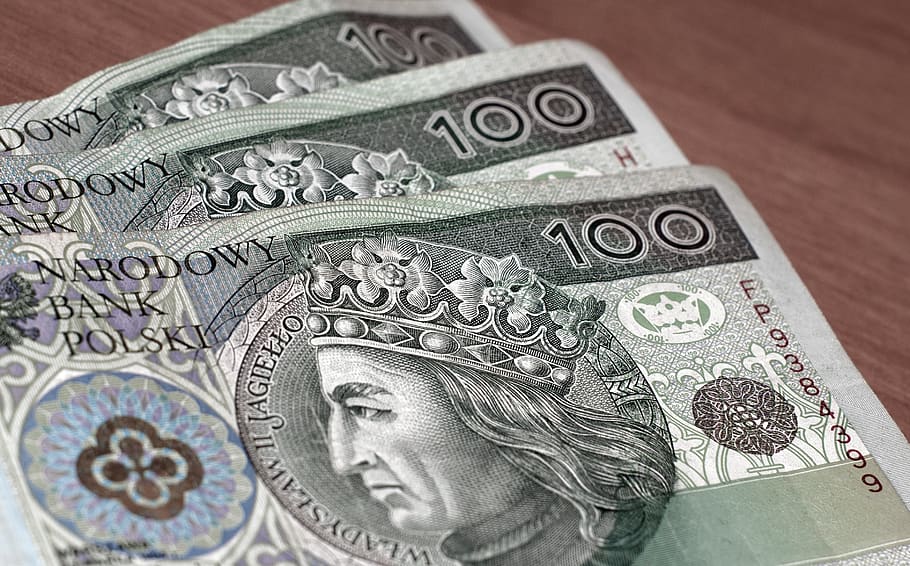The value of household savings in Poland has passed the 2 trillion zloty mark for the first time, after reaching 2.03 trillion zloty (€456 billion) at the end of the first quarter of 2023.
Poles’ savings – calculated as assets minus liabilities – grew 7.4% year on year, show figures from the Polish Development Fund (PRF), a state-owned financial group. Compared to the previous quarter, meanwhile, they rose by 2.6%.
The value of all financial assets of Polish households, meanwhile, amounted to 2.85 trillion (€640 billion) at the end of the first quarter of 2023, 3.5% higher than a year earlier and 1.5% up from the previous quarter.

Household assets (yellow bars), liabilities (red bars) and net assets (black line). Source: PFR
Although the total amount of accumulated savings and assets has been increasing, the stubbornly high inflation of the last two years has weighed on the real value of assets.
Although inflation has slowed in recent months to 11.1% in June and 10.8% in July, after reaching a peak of 18.4% in February, it remains well above the rate of return of many financial products.
PFR notes that the real interest rate for deposits, taking into account the impact of inflation, was -10.1% in Poland at the end of June, among the lowest in the EU and ahead of only Slovakia and Hungary. Luxembourg was the only EU country with a real interest rate above zero, at 0.2%.

When calculating household assets, PFR takes into account cash, savings deposits, insurance policies, voluntary pension schemes, shares in investment funds, shares and bonds, as well as loans to individuals by individuals.
It notes that the largest proportion of Polish households’ assets, 27.5%, are held as bank deposits. The second most prominent component were “other equity products” (13.9%), such as shares in limited liability companies, partnerships, cooperatives and mutuals.
In third place were “other deposits”, which accounted for 12.8% of financial assets, followed by cash (12.1%). The share of cash in total assets has been falling since the middle of last year, however, leading to the loss of its position as the third largest component of financial assets.
Poland is scrapping limits on the maximum size of cash payments.
The decision comes after a junior partner in the ruling coalition criticised the restrictions as an infringement of freedom at the behest of “eurocrats” and the “banking lobby” https://t.co/USLAOEiS9X
— Notes from Poland 🇵🇱 (@notesfrompoland) June 19, 2023
Despite this, the share of cash as a proportion of GDP in Poland, at 10.8%, was one of the largest in Europe at the end of the first quarter, behind only German (11%) and Slovenia (13.3%).
Only 7.5% of Poles’ assets were held in pension savings, 4.3% in investment funds and 3.3% in publically traded shares. As a share of GDP, Poland is behind most EU countries in these components.

Notes from Poland is run by a small editorial team and published by an independent, non-profit foundation that is funded through donations from our readers. We cannot do what we do without your support.
Main image credit: Oleksandr P / Pexels

Alicja Ptak is deputy editor-in-chief of Notes from Poland and a multimedia journalist. She has written for Clean Energy Wire and The Times, and she hosts her own podcast, The Warsaw Wire, on Poland’s economy and energy sector. She previously worked for Reuters.



















